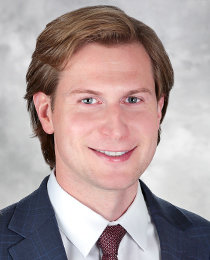Contact the Health-System Pharmacy Administration and Leader...
Residency Program Director
Bryan C. McCarthy Jr., PharmD, MS, MJ, FASHP,
System Director of Inpatient Pharmacy, Lifespan
401-444-5447
[email protected]

The purpose of Brown University Health Rhode Island Hospital PGY-1 and PGY-2 Health System Pharmacy Administration and Leadership Residency program is to build on Doctor of Pharmacy (PharmD) education and outcomes to contribute to the development of autonomous clinicians and confident pharmacy leaders responsible for system-based thinking in healthcare, eligible for board certification, and eligible for clinical, operations, quality, safety, and ambulatory pharmacy leadership positions in health system settings.
Residency Program Director
Bryan C. McCarthy Jr., PharmD, MS, MJ, FASHP,
System Director of Inpatient Pharmacy, Lifespan
401-444-5447
[email protected]


Brown University Health is pleased to offer a variety of pharmacy residency programs accredited by the American Society of Health-System Pharmacists (ASHP).
The residency program will provide the resident with specific learning/practice experiences designed to enable the resident to expand the scope of their his or her practice skills. The program objectives and goals are based on ASHP standards a standard list provided by ASHP and reflect our program’s purpose.
Program graduates will be prepared to function independently and act as essential members of an interdisciplinary team caring for patients. Further, graduates will be prepared to function as adjunct faculty for pharmacy students on rotation and in classroom learning experiences at a college of pharmacy. Finally, graduates will be prepared for board certification in pharmacotherapy.
The resident is expected to achieve the objectives of the residency program related to both administrative and professional practice skills. The resident reports to and is supervised by the rotation preceptor and the residency program director. During staffing, the resident is under the supervision of the pharmacist in charge.
Hours of practice vary according to the requirements set forth by the preceptor and director. The resident is expected to be present in body, mind and spirit at all assigned activities of the service they are currently a part of, including medical staff rounding, clinic visits and administrative activities. An eight-hour day is expected for physical presence on site during assigned work days.
The residency program is the resident’s most important commitment. Working extra shifts outside the residency program requirements (moonlighting) is strongly discouraged, especially at the beginning of the residency. To work overtime, the resident must be trained in the area. Extra work moonlighting and overtime work must be requested through and approved by the residency director and hours worked will be reported on a monthly basis by each resident. Consideration will be given to residency workload and deliverables assigned and resident standing within the program.
Core rotations:
Elective rotations:
Longitudinal rotations:
Core rotations:
Elective rotations:
Longitudinal rotations:
Pharmacy practice staffing responsibilities are every third weekend plus one weekday evening every other week. Weekend shifts may rotate between first and second shift.
Residents are responsible for staffing two holidays per year. Recognized hospital holidays include New Year’s Day, Martin Luther King Jr. Day, Memorial Day, Labor Day, Thanksgiving, Christmas Day.